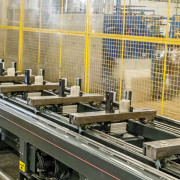What’s the deal with cover letters?
Do I need one? Do employers even read them? How do I write a good one? Applications comprised of a cover letter and CV are common sights for recruitment consultants – however, we often see applications containing only the latter as well. Every job seeker knows that they need to detail their experience in a CV, but cover letters are sometimes seen to be optional. In this blog we examine why cover letters are worth including in a job application.
Cover Letters – Are they worth including in my application?
In most cases, yes. There are a myriad of separate reasons for why you may want to take the time to prepare a cover letter to accompany your CV, but here’s the four main ones.
-
To tailor your application towards a specific employer/role
When you have only one copy of your CV that you’ll use for every company you apply to (I’m guilty of this!), a cover letter serves as a simple and effective way to ‘frame’ your application in a way that pertains directly to the employer reading it. For example, you may be a construction professional applying for a position which would see you working on tall vertical structures such as high rises. In your cover letter, you may want to add in a small paragraph discussing that specific experience so that an employer knows to look for it in your CV. If you had the time to do so, you could also rearrange your CV to highlight that specific experience – doing this in conjunction with a tailored cover letter would strengthen your application and make it much easier to review for the recruitment consultant or employer reading it.
-
To show that you’re serious about wanting the position
We all know how easy it is just to click on a series of job ads, upload your CV to each of them and then walk away from the computer. Employers know this too, so if you want to stand out from other applicants who are doing the same thing, try taking the time to write a cover letter. A cover letter, if nothing else, shows an employer that you want the role enough to take the time to produce a unique document solely for that application.
-
It provides insight into your ability to communicate in written form
The large majority of jobs out there, whether they’re technical in nature or not, require some form of written communication. A cover letter can serve as an early indication of your writing ability which is helpful for an employer to see from an early stage. Many employers regard this as a fundamental skill.
-
You can talk specifically about why the role interests you
Your CV represents your skills and experiences but does not give you the ability to state why you’re applying for the particular job you’ve sent it in for. What drew you to the job in the first place? Why might you be a better pick over other candidates? Your cover letter gives you the ability to answer these questions.

At the end of the day, composing a cover letter can’t hurt your application – you only stand to gain from taking the extra time to write one!
Okay, so they’re worth doing. How do I write a good one?
There is a helpful guide on the Careers.govt website located here which will tell you everything you need to know. In a nutshell, your cover letter should:
- Show that you have a genuine interest in the role.
- Detail which of your skills and experience make you the right fit for the job.
- State how you found out about the job.
- Provide contact details if your CV doesn’t already.
- Be no more than one page long.
- Be easy to read and well-formatted.
Remember that a CV uploaded without a cover letter is a CV without context. Employers do read them and often times are expecting one. Give yourself the best chance at landing the job you want by making sure you include one.
Article by Dario Luca, Marketing Coordinator

















Leave a Reply
Want to join the discussion?Feel free to contribute!